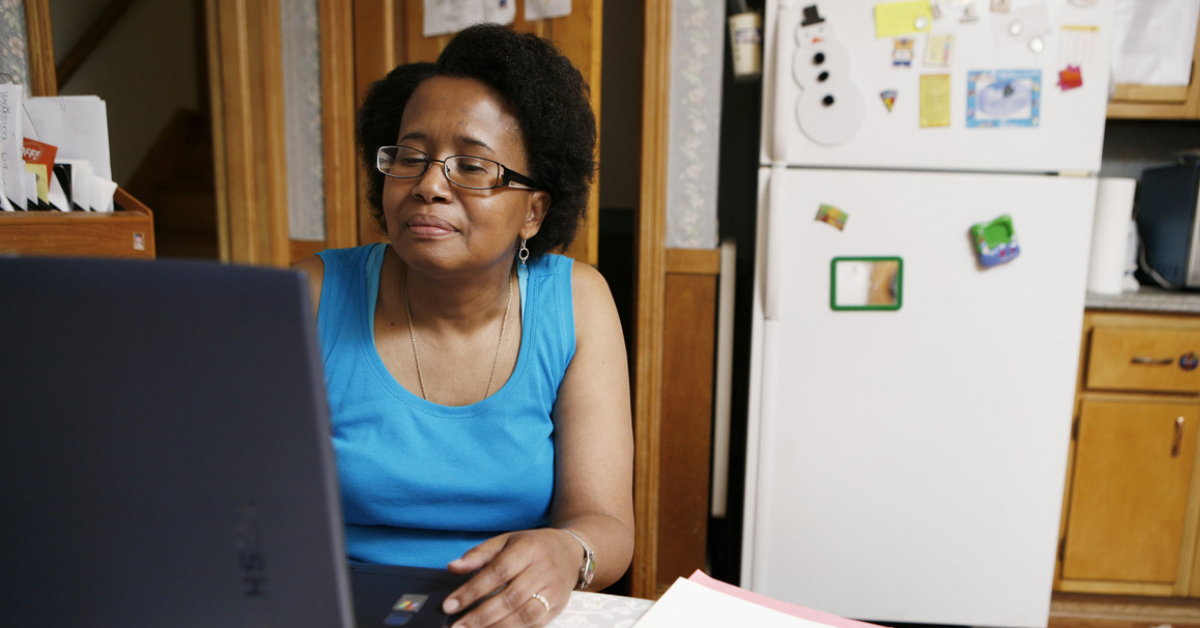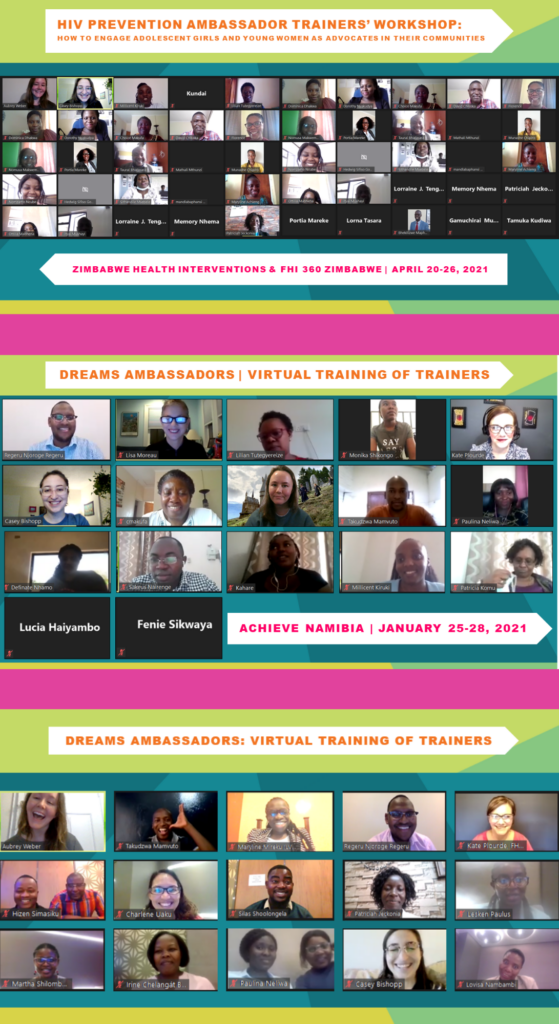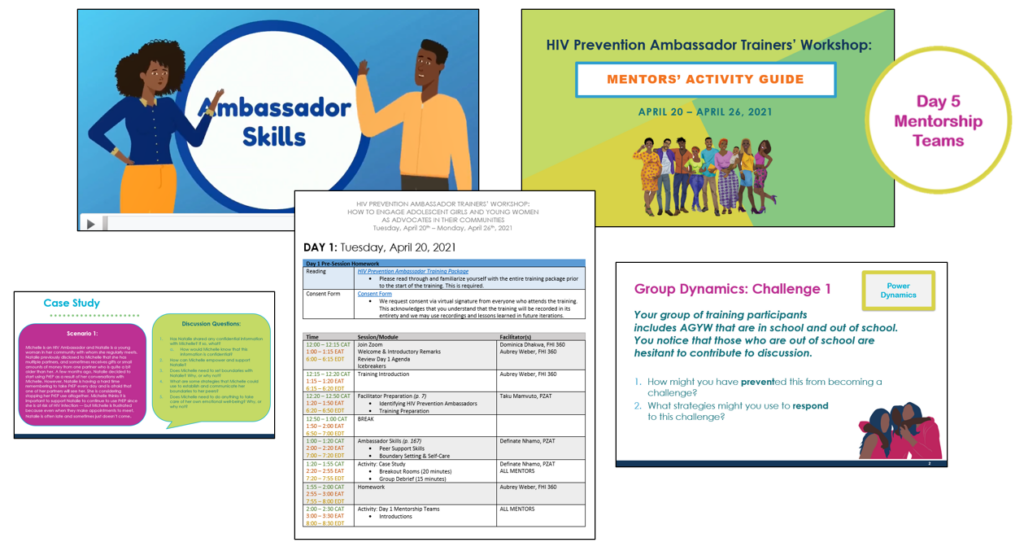Aubrey Weber, Technical Officer, Research Utilization, FHI 360
In 2020, the global COVID-19 pandemic demanded a shift in how we think about and deliver technical assistance. As members of the FHI 360- and Jhpiego-led Collaborative for HIV Prevention Options to Control the Epidemic (CHOICE) team, we asked ourselves two questions:
- How might we continue to support the scale-up of the HIV Prevention Ambassador approach for adolescent girls and young women (AGYW), which was first developed by the OPTIONS Consortium in collaboration with Collective Action, during COVID-19 restrictions and lockdowns?
- How might we tap into the technology available to us to strengthen our own capacity and the capacity of our implementing partners in an entirely virtual environment?
Frankly, these were big questions. We could not simply throw together a PowerPoint presentation, invite participants, and share our screen. It would be a disservice to our work in global health and development to believe that this would yield sustainable results.
Our response was to turn the unique challenges in front of us into an opportunity to innovate, not only in how we conduct trainings, but also in how we build mechanisms for continued learning after trainings have concluded. So, we set out to design and develop an interactive, virtual HIV Prevention Ambassador trainers’ curriculum. The pilot training was conducted via Zoom in September 2020 with Project HOPE Namibia, a USAID implementing partner of PEPFAR’s DREAMS initiative.
Our interactive, virtual trainers’ workshop offers programs a concrete, online approach to achieving pre-exposure prophylaxis (PrEP) targets and supporting AGYW to reduce their risk of HIV infection. The workshop is designed for those who will train AGYW to become HIV Prevention Ambassadors and is conducted online via Zoom over the course of five days. Each day consists of two key components: a 2.5-hour live Zoom session and assigned homework and group work to be completed by training participants during offline hours. The main objectives of the trainers’ workshop are to prepare HIV Prevention Ambassador trainers to present information effectively, respond to participant questions and concerns, and lead activities that build HIV Prevention Ambassadors’ skills and knowledge in providing their peers with accurate information about PrEP.
Building on lessons learned from the pilot, we continue to refine and iterate the virtual training curriculum for use by other implementing partners working with AGYW on HIV prevention. To date, we have conducted three versions of the workshop. Our second variation was delivered in January 2021, and our third was delivered in April 2021. Participant feedback led us to introduce a new component during our most recent iteration: mentorship teams. Participants are assigned a mentor and a small support group before the training begins. Participants then meet with their mentor in breakout rooms after each session of the workshop. This personalized support network allows participants to work through additional activities, have their questions answered, deepen their understanding of the content presented, and engage with a knowledgeable mentor. Due to initial success with the mentorship team model, we are now in the process of conceptualizing and building a broader virtual network of facilitators, mentors, and trainers to carry this work forward and ensure that the learning does not end on Day 5.
This is the first blog post in a series on the design, development, implementation, and iterative processes of the interactive and virtual HIV Prevention Ambassador Trainers’ Workshop, led by the U.S. President’s Emergency Plan for AIDS Relief (PEPFAR)- and the United States Agency for International Development (USAID)-supported Collaborative for HIV Prevention Options to Control the Epidemic (CHOICE) through the terms of cooperative agreements of the EpiC and RISE projects. In this series, we share our experience and reflect honestly on the ups and downs of designing and delivering a comprehensive training virtually. Access the HIV Prevention Ambassador Trainers’ Workshop materials here.
Photo Credit: Jessica Scranton/FHI 360



